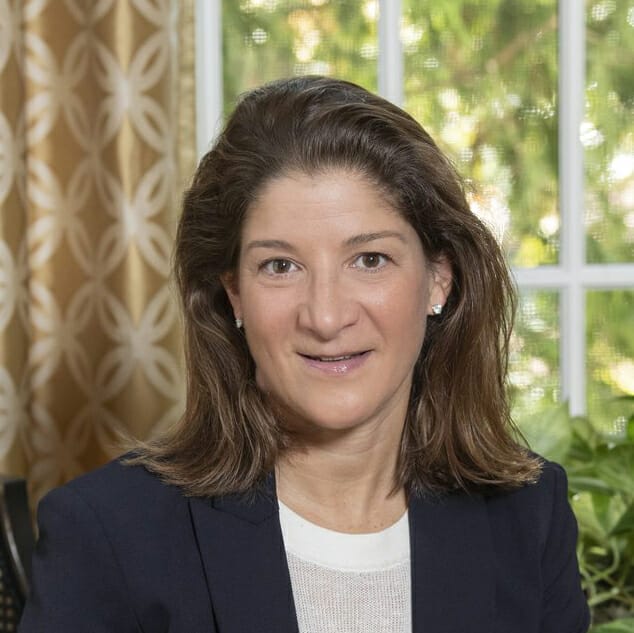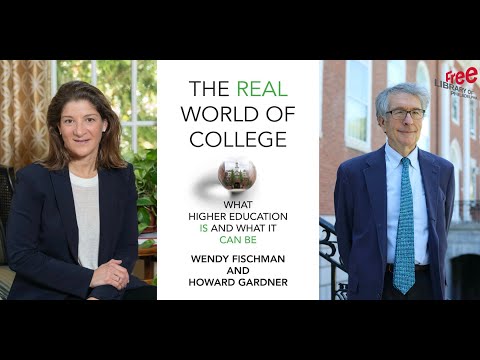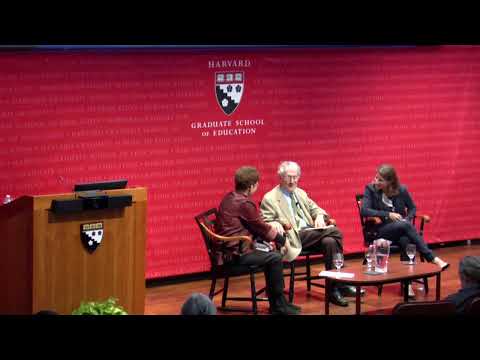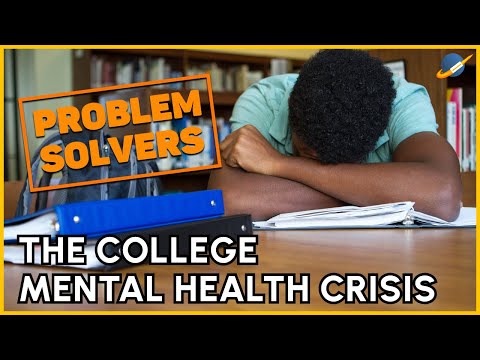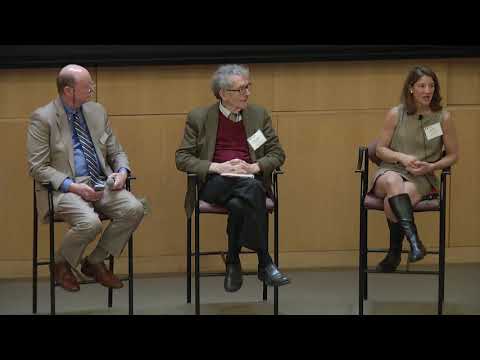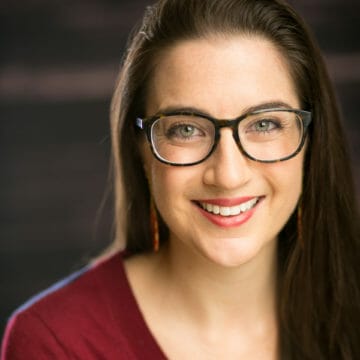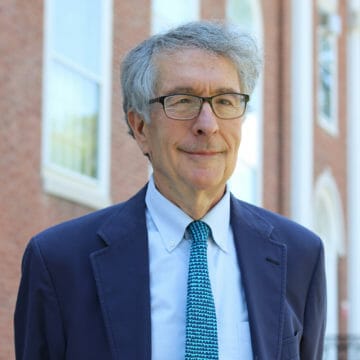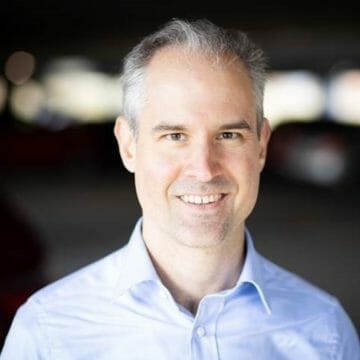Videos
Learn More About Wendy Fischman
Higher education is at a crossroads. There is a damaging disconnect between what many young people (and their parents) are expecting or getting from a high school or college experience and what administrators and faculty believe they should deliver. Institutions of higher education have lost their way and need to refocus on their primary mission of developing and amplifying students’ ability to think well, broadly, and responsibly about issues that matter to the “real world.”
How can higher education leaders help students understand the long-term value of learning beyond seeing it as a path to a degree or job? How can high school leaders help formulate an educational experience that will promote well-being, a sense of belonging and ultimately send helpful messages to students about the role of education in their lives as college students, future workers and citizens?
After more than two decades of study and thousands of in-depth interviews with students, faculty, administrators, parents, alums, trustees and recruiters across the U.S., acclaimed education and human development scholar Wendy Fischman – a longtime researcher at the Harvard Graduate School of Education – has amassed a treasure trove of insights into how the U.S. education system is viewed and experienced by stakeholders. A trusted advisor, speaker and researcher, she helps decision makers across the sector, including deans, administrators, principals, educators and policymakers, positively transform their institutions and the students they serve.
In their eye-opening book “The Real World of College: What Higher Education Is and What It Can Be” (MIT Press, March 2022), Fischman and her co-author, esteemed developmental and cognitive psychologist Howard Gardner, reveal the powerful results of more than 2,000 interviews across 10 disparate institutions of higher learning in the U.S. As social scientists, using both quantitative and qualitative analyses, they present empirical “real-world” evidence that reaches beyond the news headlines and, in some cases, challenges them. They then offer recommendations on how schools, and the sector as a whole, can enrich learning experiences in ways that provide lifelong benefits to students.
“During our research we were surprised to discover that more than half the students, and their parents, are not particularly interested in developing the mind,” Fischman reveals. “They approach the college experience with a ‘transactional’ view, that the purpose of college is to secure the first job. Fewer students are ‘exploratory,’ seeking to marinate in new ideas, try out new disciplines, interests and experiences; and only a small minority are ‘transformational,’ viewing college as an opportunity to consider and reflect on beliefs, values and perspectives, and to expand the mind. A troubling and unexpected discovery is that the transactional view — pressure to achieve and earn — is what students describe as causing many of the mental health issues on college campuses.”
The book is a culmination of the work the co-authors have been doing for more than two decades in conjunction with Harvard’s Project Zero and The Good Project. A research collaborative founded in 1996 by Gardner and legendary psychologists William Damon and the late Mihaly Csikszentmihalyi, The Good Project focuses on helping young people navigate dilemmas to carry out excellent, ethical, engaging work – equipping them with the tools they need to make reflective, responsible, and thoughtful decisions throughout life.
Fischman’s insightful research and unique perspectives give educational leaders the information they need to cultivate open-minded thinkers and problem solvers who graduate with a more expansive view of the world and their important place in it.
“People have been eager to read our book because an in-depth qualitative study of higher education has not been carried out in decades,” says Fischman. “We hope it sparks conversations about the importance of making educational experiences more transformational and exploratory, and less transactional. We need to ask ourselves what it means to prepare students for ‘the real world.’” Is the real world just about work, or is it about citizenship, community and life?”
###
Wendy Fischman has spent years researching the higher education landscape with Dr. Howard Gardner, allowing them to make data-driven recommendations on how to improve the system for all students, no matter their reasons for attending college or their goals in life. Fischman has co-developed a curriculum for students and teachers to introduce the concept of “good work” in classrooms and schools. Since 1996, she has managed various aspects of the GoodWork® Project, specifically focusing on the meaning of work in the lives of young children, adolescents and novice professionals. She has published articles about education and human development in several scholarly and popular publications, addressing topics such as lifelong commitment to service work, inspirational mentoring and teaching in precollegiate education. Fischman has taught humanities to middle school students and has evaluated school reform programs facilitated by a government-sponsored regional laboratory.
Wendy Fischman is available to talk with and advise your organization via virtual and in-person consulting meetings, interactive workshops and customized keynotes through the exclusive representation of Stern Speakers & Advisors, a division of Stern Strategy Group®.
Higher Education at a Crossroads
Findings point to there being a damaging disconnect between what many young people expect from a college experience and what administrators and faculty believe they should deliver. Institutions of higher education have lost their way and need to refocus on their primary mission of developing and amplifying students’ ability to think well, broadly and responsibly about issues that matter to the “real world.” How can higher education leaders help students understand the long-term value of learning beyond seeing it as a path to a degree or job? How can high school leaders help formulate an educational experience that will promote well-being, a sense of belonging and ultimately send helpful messages to students about the role of education in their lives as college students, future workers and citizens? In this talk, acclaimed education and human development scholar Wendy Fischman – a longtime researcher at the Harvard Graduate School of Education – shares in-depth research and insights from her new book, “The Real World of College: What Higher Education Is and What It Can Be” (March 2022), co-authored with esteemed developmental and cognitive psychologist Howard Gardner. The book, which summarizes more than 2,000 interviews with students, faculty, administrators and others involved in higher education, reveals what stakeholders really think. Drawing on her extensive research, Fischman outlines ways leaders can proactively enrich learning experiences so students can develop a more expansive view of the world and their place in it.
Life After Graduation: Preparing High School Students for the “Real” World of College
High school is a pivotal time for young people as their sense of individuality takes shape and they start to explore their place in the world. Yet, the focus of high school has become getting in to college, rather than preparing students for college. In this talk, acclaimed education and human development scholar Wendy Fischman – a longtime researcher at the Harvard Graduate School of Education – shares her extensive research which reveals that high schools are failing to prepare students to get more than a “transactional” college experience — that they only view high school as a way to get into college and college as a means to a job. She examines the causes and damaging effects of this “mental model,” including less intellectual development in college, and increased anxiety and stress, and offers solutions. Her research and insights help educators, administrators, college counselors and parents cultivate ethical, open-minded, lifelong learners who are reflective problem-solvers and contributing members of society.
Transactional Versus Exploratory: Identifying and Correcting Mental Models About Learning
According to acclaimed education and human development scholar Wendy Fischman – a longtime researcher at the Harvard Graduate School of Education – most students have a transactional view of education. They see high school as a way to get into college and college as a means to a job. Lost along the way is a deeper understanding of learning that informs a person throughout their life and makes them more ethical, engaged, problem-solving citizens. In this talk, Fischman discusses these mentals models, the limited thinking behind them and the opportunities for enriching the lives of students going forward. She then outlines ways institutions can reshape the learning experience so students develop a more expansive view of the world and understand the importance of actively contributing to the greater good throughout their lifetimes.
Addressing the Student Mental Health Crisis
A surprising and troubling finding emerged as longtime Harvard Graduate School of Education researcher Wendy Fischman and her co-author – esteemed developmental and cognitive psychologist Howard Gardner – were working on their new book, “The Real World of College: What Higher Education Is and What It Can Be” (March 2022). After conducting the largest study of its kind in the U.S., during which they interviewed thousands of students, faculty, administrators, parents, alums, trustees and job recruiters, they unexpectedly discovered that mental health was the biggest problem on college campuses, and that its significance is on the rise. Large numbers of students reported angst and stress about achieving (earning, not learning) as well as feelings of isolation and alienation from the institution, their academic activities and their peers. In this talk, Fischman offers up insights on how institutions can proactively address this pervasive problem and refocus its students on how they can become responsible and productive citizens of the world.

Making Good: How Young People Cope with Moral Dilemmas at Work
(Harvard University Press, March 2004)
Praise for "The Real World of College"
“This provocative book explores the views of thousands of students and other campus personnel. Finding many students alienated and narrowly focused on grades and resumes, the authors call for a renewed emphasis on the larger intellectual and social purposes of college.”
“In this bold and visionary book, Fischman and Gardner offer transformational solutions to the grave problems facing higher education today. The book’s compelling recommendations are supported by their definitive study of contemporary college life.”
“Based on extensive field work and thoughtful analysis, ‘The Real World of College’ offers an exceptionally valuable account of liberal arts education in the US today. There are some surprises in these findings, and much to ponder in the recommendations.”
